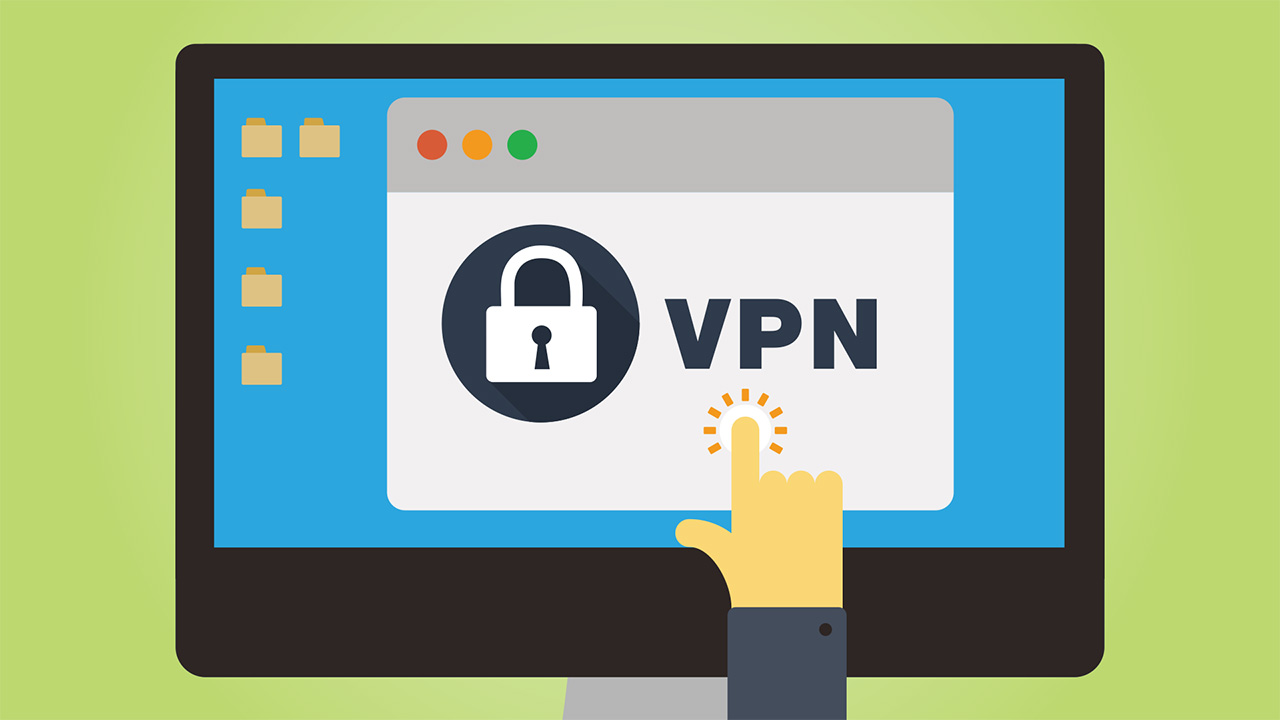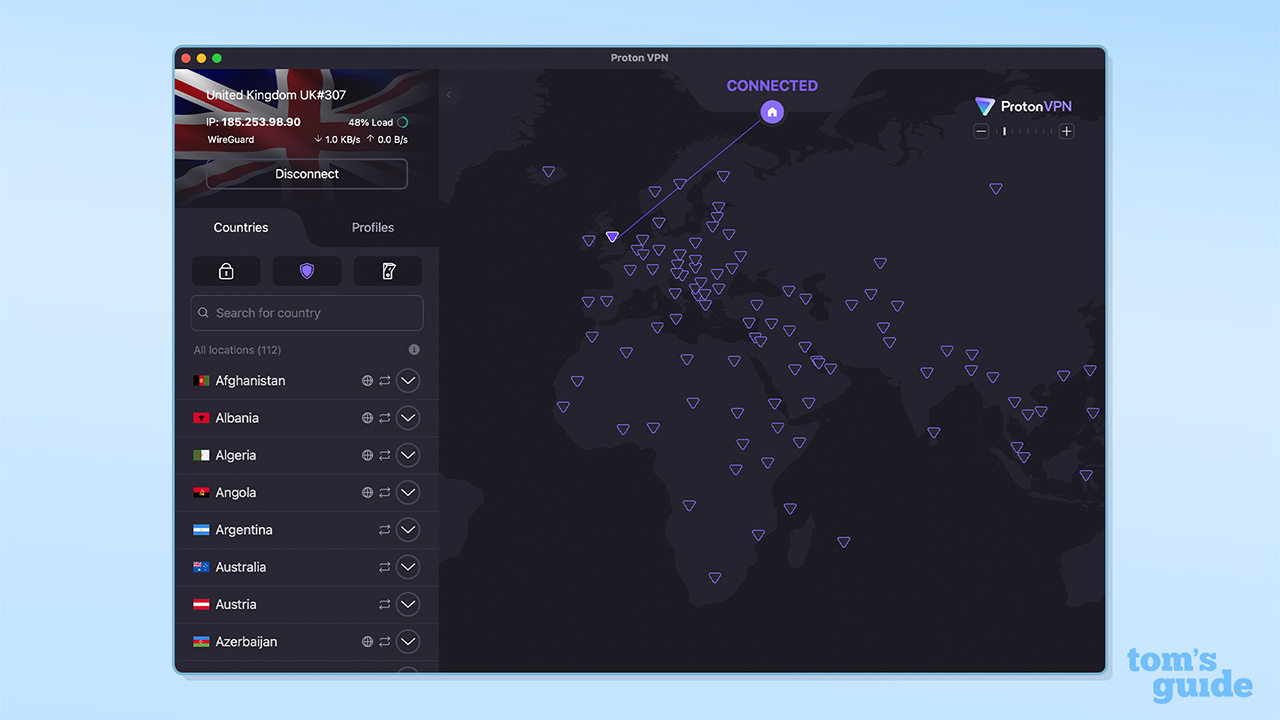
Online privacy is a real concern for many, with more and more people seeking ways to protect themselves. Cybercriminals look to exploit internet users, and VPNs are great tools for boosting online privacy, with many offering a wide range of features beyond encryption.
However, these VPNs cost money, something which can act as a barrier for some people,and therefore free VPNs are seen as an affordable alternative. Whilst the best free VPNs are perfect for internet users on a budget, not every free VPN out there is safe.
Free VPNs can be exploited by scammers, who offer "too-good-to-be-true" services, and can set up fake free VPNs. The more popular VPNs become as a whole – which is a good thing – the easier it is for these scams to occur and take advantage of privacy-concerned internet users.
According to Security.org, 43% of VPN users are subscribed to a free service, and these may not offer the level of protection required. As well as lower levels of protection, free VPNs may utilise tracking features, and sell your data on to third-parties.
As the popularity of VPNs rises, it is vital to highlight what the best VPNs look like, and what to avoid – this article will aim to do just that.
VPN scam statistics
Let's start with some numbers. Data from VPNRanks has predicted that by 2025, 80% of free VPNs may embed tracking features, and data sales to third-parties could reach 60%. Quality VPNs should not – and will not – log your data, or monitor what you're doing when connected to a VPN. Any VPN that does should be avoided.
Fake reviews may comprise 37% of app reviews by 2025, influencing the downloads of unreliable VPNs. Also by 2025, malware could impact 39% of free Android VPNs with IP leaks at 84.5%, and third-party tracking at 76.5%.
With YouTube VPN ad content predicted to reach 421 videos by 2025, with a viewership of 103 million, it is important people are aware of the threats of unsafe VPNs – regardless of whether they're new to VPNs or a VPN veteran.
It's worth noting that this data is an estimation, based on historical data and current trends. However, it is still a damning view of the potential threat posed by VPN scams.
Are free VPNs safe?
All the top VPN providers are perfectly safe, and will grant you excellent levels of online protection and privacy. They will encrypt your data, change your IP address, protect you when connecting to public Wi-Fi, and some even come with antivirus and malware protection or cyber insurance.
But free VPNs are where the scams lie, with cybersecurity company Kaspersky reporting that Q3 of 2024 saw the number of users encountering malicious apps posing as free VPNs rise 2.5 times compared to Q2.
You might be asking "are free VPNs safe?" Yes is the answer, but make sure you are fully aware of what you're signing up to.
Privacy and Data Collection
Many free VPNs make their money from ads, and selling your data, and this is predicted to increase in 2025. This is a big red flag, and completely defeats the purpose of using a VPN. So, before you do anything, research the VPN provider you're interested in and analyse its privacy policy. The most reputable VPNs will have a transparent privacy policy, and more often than not, have a verified no-logs policy.
VPNs shouldn't be asking for excessive personal information when you sign up, so if your VPN provider is asking for too much, you may want to consider an alternative VPN.
VPNs that slow you down
It is commonly known that a side-effect of VPNs is the possibility of them slowing down your connection. But they shouldn't slow it down to the point it's unusable, and with the fastest VPNs, you likely won't notice any difference.
The speed of a VPN depends on the quality of your network connection, but nowadays, if your connection is good, then your VPN speeds should match that. Surfshark is the fastest provider we've tested, hitting speeds of over 950 Mbps, and many of the best providers are more than fast enough for the average user.
If you love streaming, and don't want to be slowed down, then consider one of the best streaming VPNs. There is a large crossover between the fastest providers and the best for streaming.
Using a free service doesn't necessarily mean you have to compromise speeds. PrivadoVPN, our top rated free VPN, hit speeds of 950 Mbps and so did the second-best free VPN, Proton.
Many VPN providers offer a 30-day money-back guarantee, so this is a good option if you want to test speeds before committing to a VPN.
Suspicious reviews and ads
VPNs can use fake reviews to appear more genuine, and these can trick you into downloading poor and malicious apps.
You should gather as much information on a VPN provider as you can, from a variety of sources – including trusted tech websites such as Tom's Guide. Our team spends hours meticulously testing and analyzing products to ensure we can give you the best advice.
Be wary of overly positive reviews that may also be vague and lacking detail. These have a higher chance of being fake and mass produced in a short space of time.
Advertising is something many of us experience every day, sometimes without even realising it. Watch out for VPN ads over-promising on features, and boasting exaggerated claims about security.
The best providers do offer incredibly high levels of security, and many come with a wide range of useful features. But this can all be verified and checked, so you know what they're offering is genuine.
If you see an unfamiliar provider promising the world, then take the time to independently search them up. Always be cautious and double check, and don't click on suspicious ads.
Unusually high fees
Premium VPNs should not cost a fortune, and you can protect yourself online with top-rated VPNs for less than $3 a month. Surfshark is the best cheap VPN, costing the equivalent of $1.99 per month.
Subscribing to multi-year plans is often the cheapest way to purchase a premium VPN and many include additional months for free.
There are VPN companies, such as FastestVPN, that offer a lifetime subscription. Users can protect all their devices with just one payment of $40, which makes FastestVPN one of the cheapest options out there.
Whilst FastestVPN's lifetime plan is completely legitimate and trustworthy, other lifetime subscriptions may not be. It's worth researching the plan, and reading other people's experiences before considering one of these plans. One, two, or three-year plans, often offered by the leading VPN providers, can allow more flexibility and security, but are often more expensive.
Many VPNs include a heap of additional features, often at no extra cost, but there are optional add-ons that can be purchased. The best providers are clear with what is and isn't included, so you know what you're paying for. If a VPN doesn't display its feature list, or its list of paid ad-ons seems very long, then it might be a VPN to avoid.
What are some trusted VPNs?
Free VPNs
As mentioned above, there are many excellent free VPNs. PrivadoVPN Free and Proton VPN Free are two of the best. They don't offer as many features as their paid counterparts, but they're fast, offer solid privacy and security, and do everything a reliable VPN should.
Free VPNs often have data or device limits, so if you have a range of devices you want to protect, or know you'll be doing more than just browsing the internet, then you may want to consider a paid VPN.

Cheap VPNs
They've both been mentioned before, but Surfshark and FastestVPN are two of the cheapest VPNs out there. Surfshark is the best budget VPN overall, combining great features and protection with an incredible price. FastestVPN is a solid, perfectly usable VPN, but doesn't quite hit the heights of some other providers we've reviewed.
As well as these, PrivadoVPN's paid version is a very reasonable $1.48 per month. Like FastestVPN, it doesn't quite hit the heights of some other providers, but is great for unblocking and streaming, and is pretty quick.
Best VPNs
Many of the VPNs mentioned here all feature in our best VPN list. NordVPN is our number-one choice, and is great value. It is more expensive than the likes of Surfshark, but it's by no means the most expensive VPN out there. NordVPN is the perfect all rounder, with top privacy credentials, protection for all your devices, great speeds, and perfect for streaming. More premium NordVPN plans include some great additional features such as Threat Protection Pro (malware and phishing protection) and NordProtect (cyber insurance).
ExpressVPN sits third in our rankings, and is the best VPN for beginners. It utilises class-leading privacy, offers a load of features for no extra cost, and is easy to use. It is more expensive than others mentioned here, but you get a lot of bang for your buck.
Best for privacy
If privacy is your number one concern, then you may want to consider Proton VPN. Both the paid and free versions are incredibly privacy focused, and Proton is a household name in the security world. As well as this it's fast, has a great range of servers, and the free plan is very good.
All these VPNs come with at least a 30-day money-back guarantee so you can find the VPN that is right for you.
What happens now?
VPN, and especially free VPN, scams are out there, and likely to increase. But they are avoidable and there is a wide variety of paid and free VPNs that are reliable, safe, and will provide you with excellent online privacy protection.
Remember to do your research, be wary of VPNs that appear to-good-to-be-true, and only subscribe to genuine, safe and secure providers.







